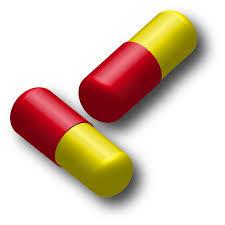When a drug or treatment is tested for efficacy, there are two groups (at least) of people involved in the experiment. One group receives the actual drug or treatment (the experimental group). The other group receives a treatment or "medication" that appears indistinguishable from the actual drug or treatment, but has no known effect - the placebo or sham.
The placebo group provides the important service of "controlling" the experiment and their results are just as critical to the experiment as the experimental group. Why? Without the placebo group, it is difficult to judge the treatment's efficacy. Placebos are the baseline from which everything else can be judged. If a group's response to placebo is the same as their response to the drug, then the drug had no actual effect.
However, it is understood that some of the controls will, in fact, respond as if they have received the drug. They get better when they are given a placebo. This is a phenomenon known as the "placebo effect" and can occur in about 30% of the control group.
A new opinion article in Biology Letters entitled "Studying placebo effects in model organisms will help us understand them in humans" dives into the possibility of studying the placebo effect in animals other than humans.
Our ability to read the environment around us and respond is critical to our well being. We can fully take in our surroundings, which takes time, or we can predict our surroundings based upon clues presented to us, which is much faster (and presumably more adaptive in a dangerous situation). For example, we feel hungry when see lasagna on the plate, or we can start to get hungry at the first clue, the smell of garlic.
The authors theorize that the placebo effect is a response to cues, not the actual situation. For example, the placebo effect was studied in runners who underwent something called “glucose rinsing.” In the case of glucose rinsing, athletes rinsed their mouths with glucose, but did not ingest it. The body responded to the initial clue that glucose was being ingested, presumably by redistributing its metabolic resources, without the actual ingestion.
Placebo effects have long been considered an outcome of human's higher cognition. For that, and other reasons, placebo effects are most frequently studied, and therefore observed, in humans.
Is the placebo effect biologically real? We're not sure. But, if it is, then it is safe to say that it evolved over time, that it confers some survival advantage, and most importantly, it should also be able to be seen in other organisms. It has been reported in rats on occasion. But, what if we could study the placebo effect in lower organisms like fruit flies (Drosophila melanogaster) or worms (Caenorhabditis elegans)?
In the study of aging, these tiny, but powerful animals who age quickly, make it easier to do many experiments in a shorter period of time. Worms, in particular, are a fantastic model for the field of dietary restriction (DR), a programmed method of reducing calorie intake and the most scientifically sound method of extending lifespan. But in worms, the extended lifespan offered through DR is disrupted by the smell of food which tricks their bodies out of DR mode and stops the extension of life.
With this example, it seems feasible to study the role of placebo in model organisms. And, perhaps we should, because the rats, mice, fruit flies and worms are where the foundation of our study of biology is laid. This might change the direction of out study of medicine. At the very least it will make our animal models more closely aligned to our human biology.
Source: Simon C. Harvey, Chris J. Beedie, "Studying placebo effects in model organisms will help us understand them in humans" Biology Letters. 29 November 2017. DOI: 10.1098/rsbl.2017.0585




